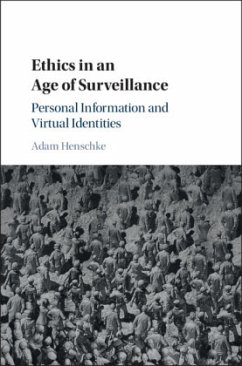People increasingly live online, sharing publicly what might have once seemed private, but at the same time are enraged by extremes of government surveillance and the corresponding invasion into our private lives. In this enlightening work, Adam Henschke re-examines privacy and property in the age of surveillance in order to understand not only the importance of these social conventions, but also their moral relevance. By analyzing identity and information, and presenting a case for a relation between the two, he explains the moral importance of virtual identities and offers an ethically robust solution to designing surveillance technologies. This book should be read by anyone interested in surveillance technology, new information technology more generally, and social concepts like privacy and property.
Hinweis: Dieser Artikel kann nur an eine deutsche Lieferadresse ausgeliefert werden.
Hinweis: Dieser Artikel kann nur an eine deutsche Lieferadresse ausgeliefert werden.
'Ethics in an Age of Surveillance remains a highly significant work to be reckoned with and responded to by those in the field of surveillance studies. It makes its mark as the first serious, full-length philosophical examination of surveillance. Furthermore, while it may appear unnecessary to some, the grounding of the debate in metaphysics and epistemology offers the field a philosophical depth that it has so far lacked. It is hard to imagine future works being able to ignore this first step on the road to a well-developed and rounded philosophy of surveillance.' Kevin Macnish, Ethics and International Affairs








